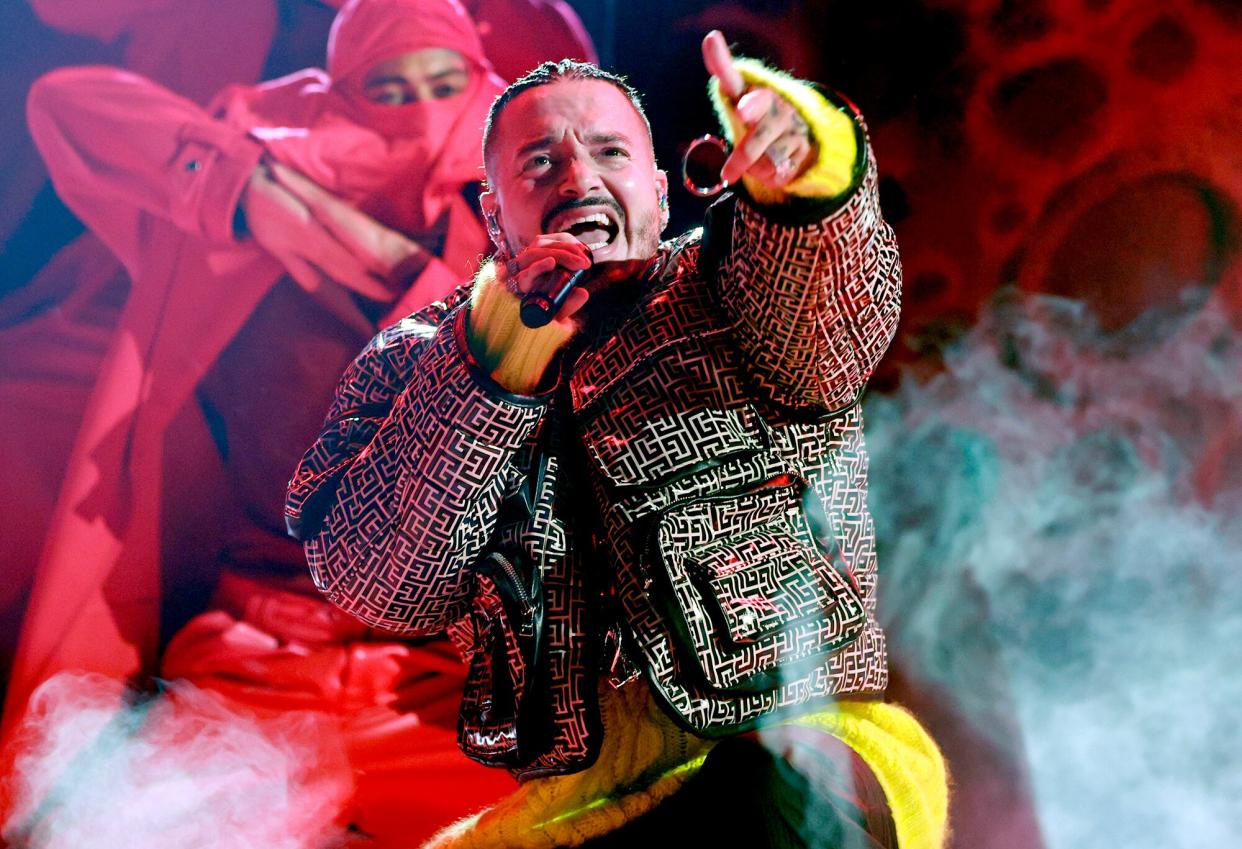J Balvin Music Video Quietly Removed from YouTube amid Backlash for Depiction of Black Women

Emma McIntyre/Getty
The music video for J Balvin's song "Perra" has disappeared from YouTube after online backlash to its depiction of Black women.
After its debut on Sept. 10, the "Perra" music video, which features rapper Tokischa, received criticism that it perpetuated "misogynoir" for showing the Colombian singer, 36, walking with two Black women on leashes, plus a moment when Tokischa poses in a dog house. The song features lyrics about dogs in heat.
The song is from Balvin's album José, which debuted at No. 1 on Billboard's Top Latin Albums chart, his fourth to do so, according to Billboard. The music video was directed by Raymi Paulus.
According to the Los Angeles Times and Billboard, the "Perra" video was taken off Balvin's official YouTube channel over the weekend without statements explaining why. An audio-only version of the track is still available to stream on the platform. It is unclear whether the removal of the video was an action taken by YouTube or Balvin's team.
A spokesperson for YouTube did not immediately respond to PEOPLE's request for comment. A rep for Balvin declined to comment.
Colombian Vice President Marta Lucia Ramírez spoke out about the music video earlier this month, writing in an open letter (translated to English) that the song has "direct and openly sexist, racist, machista and misogynistic expressions that violate the rights of women, comparing them to an animal that must be dominated and mistreated," Billboard reported.
RELATED: J Balvin Learned that 'Being Rich' Means 'Being Healthy, Happy and at Peace' After Surviving COVID
Never miss a story — sign up for PEOPLE's free daily newsletter to stay up-to-date on the best of what PEOPLE has to offer, from juicy celebrity news to compelling human interest stories.
In a recent Paper magazine profile, Balvin talked about helping reggaeton go mainstream while also understanding and appreciating its cultural roots.
"Jamaican-Panamanians doing these Spanish versions of dancehall songs was the first step. Reggae, Raggamuffin, Pancho Pan, El General, even El Chombo with 'Cuentos De La Cripta.' So we know where Reggaeton comes from, and if you're in this game you should know where you come from," he said of the genre's origins.
He added of finding artists to include on his album, "Every time I find something or someone making statements in different parts of the world, if I can amplify that or get it more into the mainstream, why not? Of course, Reggaeton enthusiasts will be highly critical because they're searching for that hard type of Reggaeton, but I have to evolve as an artist and bring the music to a larger audience. ... Music is for everybody."
Journalist Núria Net explained their personal views on the "Perra" song versus the music video on Twitter Monday.
" 'Perra' does not seem macho at all to me: it is one of the few songs in the movement in which a man and a woman sing to each other about their desire, bellaqueo etc (and the song was written mostly by Tokischa)," Net tweeted, translated to English. "What is totally despicable and racist is the video."
"But taking it down from YouTube without making any kind of statement or mea culpa is very cowardly and does not solve anything," added Net.